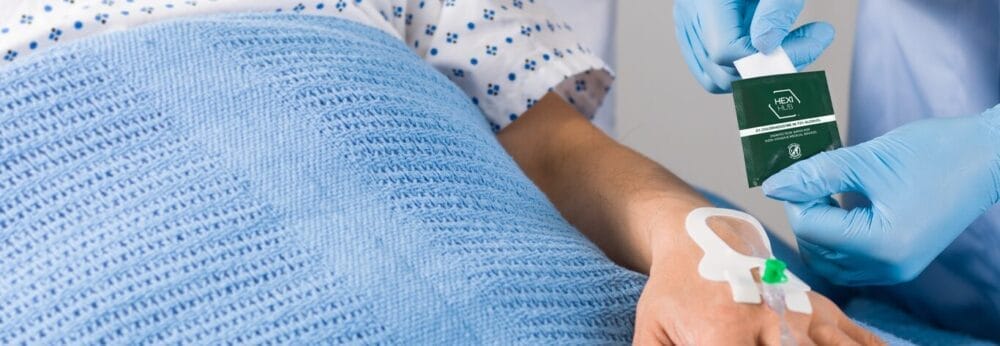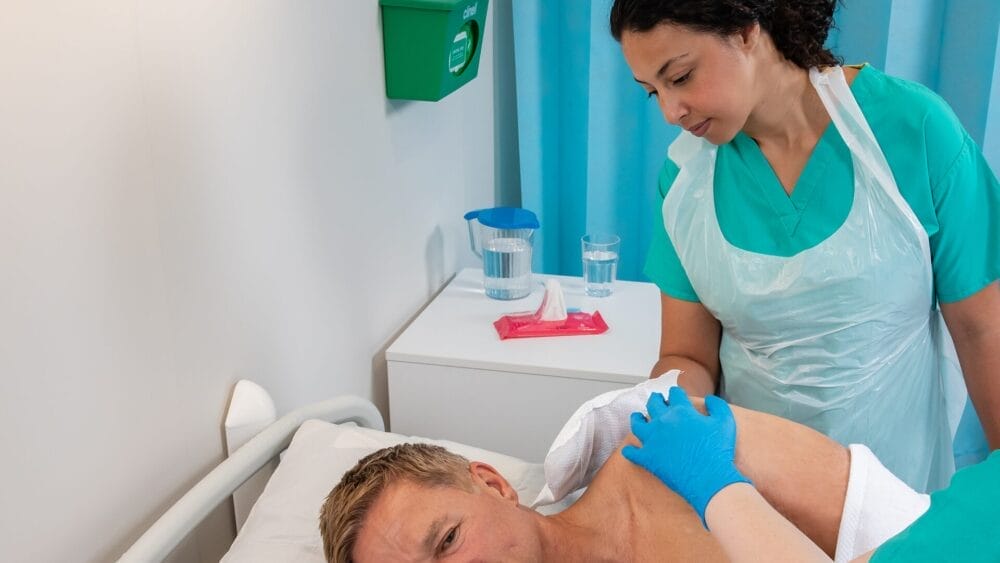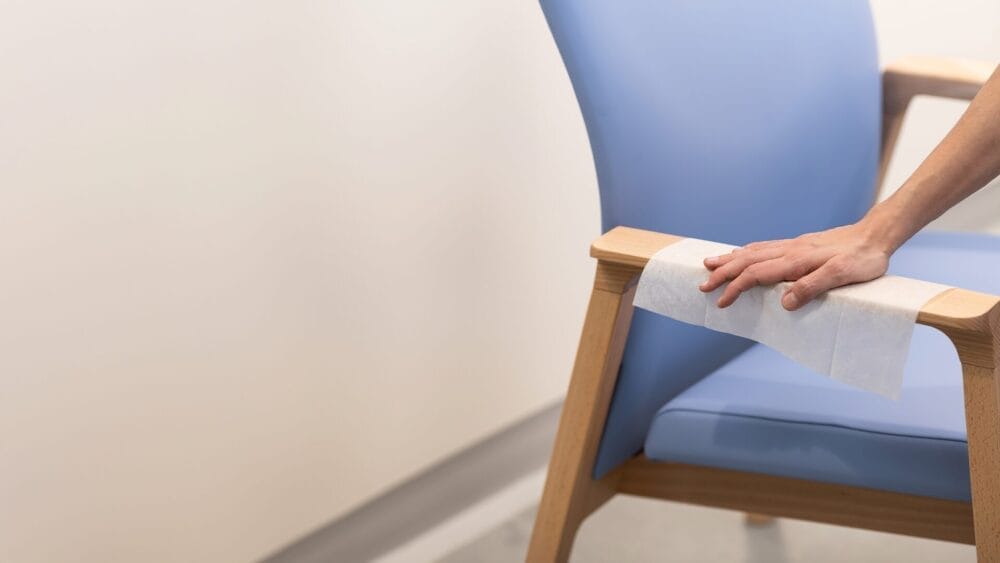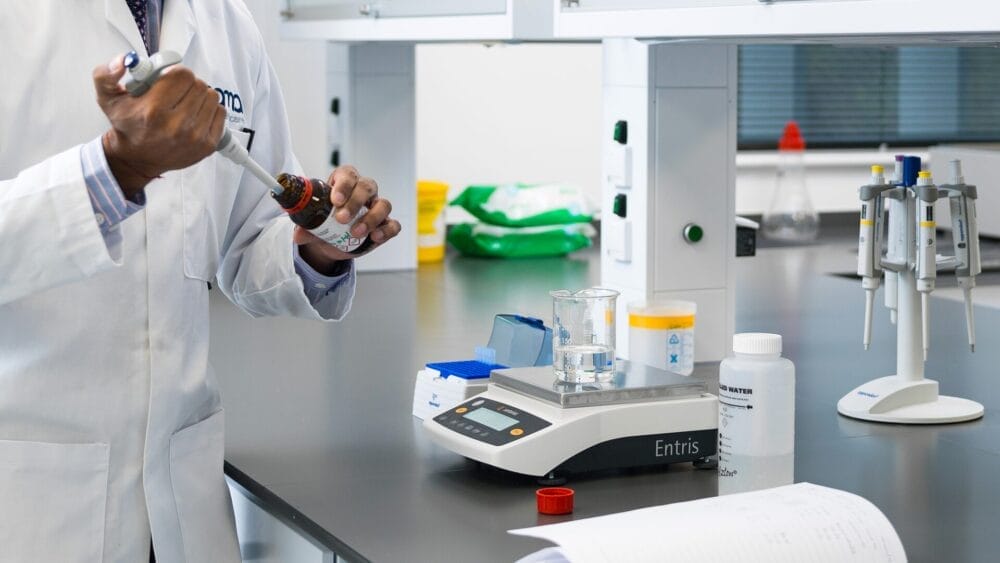Posted
15th February 2023
Products
We discuss how introducing one-step Clinell Universal Wipes at University Hospital Birmingham was associated with a significant 55% reduction in the rate of MRSA acquisition.
Clinell Universal led to a 55% reduction in the rate of MRSA acquisition
A study published by scientists from University Hospital Birmingham evaluated the impact of introducing the one-step Clinell Universal Wipes (which both clean and disinfect) to replace a two-step detergent wipe cleaning followed by alcohol wipe disinfection for nurse-led cleaning tasks. The change in disinfection approach was associated with a significant 55% reduction in the rate of MRSA acquisition.
Despite the widespread use of disinfectant wipes in hospitals, there are few studies with a clinical outcome showing that they reduce transmission of pathogens that can cause HCAI.
How was the study conducted?
The study focused on cleaning of ward areas and patient equipment performed by nursing staff (as opposed to cleaning of the general healthcare environment by cleaners). In the baseline period of the study, from April 2013 to April 2016, a two-step system was used by nurses for these tasks.
Firstly, a detergent wipe was used to clean the surface following by disinfection using an alcohol wipe. During the intervention phase of the study, from May 2016 to December 2017, Clinell Universal Wipes were used as single-step cleaning and disinfection process. The switch to Universal wipes was accompanied by an educational package spanning one month, to ensure that staff understood the switch from a two-step to a one-step process correctly.
Related article: The impact of Clinell Universal on reducing SARS-CoV-2 contamination in England’s hospitals
Number of MRSA acquisitions decreased from 20.7 to 9.4 per 100,000 patient bed days
Following the introduction of the Universal wipes, the number of MRSA acquisitions decreased from 20.7 to 9.4 per 100,000 patient bed days (p <0.005). A Poisson regression model found that the average rate of MRSA acquisition per 100,000 patient bed days reduced by 6.3% per month after the introduction of the new wipes.
Importantly, compliance with MRSA screening was high (>90%) and audits revealed no significant changes in hand hygiene compliance, the appropriate use of personal protective equipment (PPE), or environmental cleanliness during the study.
The impact of switching to Universal wipes was all the more impressive because the reduction was achieved despite the cessation of universal decolonisation using chlorhexidine during the baseline period.
Related article: 5 reasons to choose Clinell Universal for your hospital
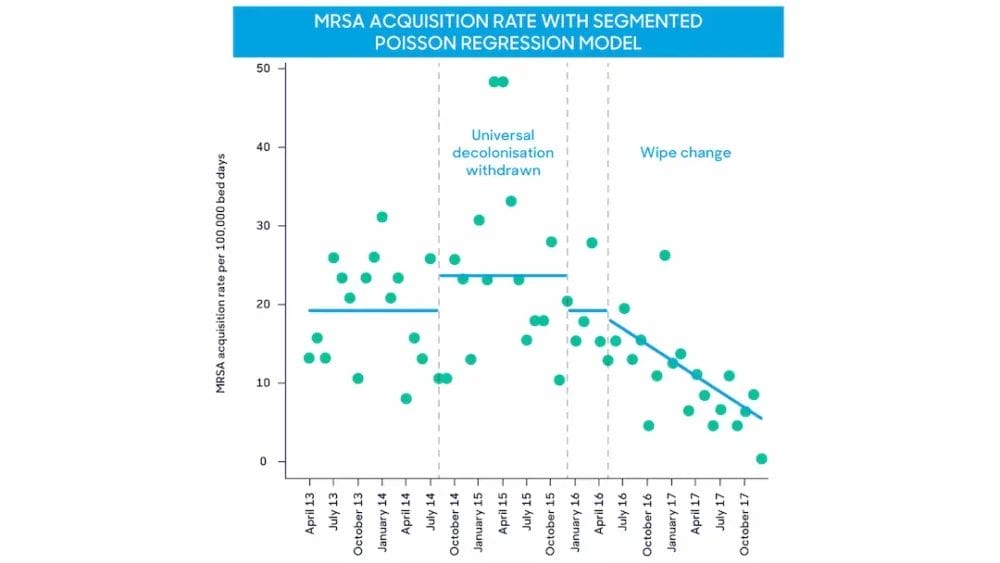
Why is this study important?
This study is important because it’s one of the first to demonstrate that switching to Universal wipes results in a significant reduction in the acquisition of MRSA. The findings underline the importance of cleaning and disinfection tasks performed by nursing staff, because by improving the efficacy of these tasks without intervening to improve general cleaning, a 55% reduction in MRSA acquisition was achieved.
The study didn’t evaluate the time that it took nursing staff to perform these cleaning and disinfection tasks in the baseline period or during the intervention, but it seems likely that the single-step process would have been quicker and less resource-intensive than the two-step process.
It seems likely that these findings would be transferable to other organisms that survive for extend periods in the healthcare environment such as CPE, VRE, and Acinetobacter species.
Related article: Surface disinfectant wipes: are you asking the wrong questions?
For more information about Clinell Universal products, contact our team on info@gamahealthcare.com. If you’d like to read more research from the GAMA Healthcare team head to the Research section on our blog. Help spread the word by sharing this article on social media.
SHARE THIS ARTICLE
Tags
Latest News
Introducing HEXI HUB: A seamless transition in our product line
We’re pleased to announce an update to our product offering…
Innovative solutions for tackling Carbapenemase-producing Enterobacteriaceae (CPE) at King’s College Hospitals
King’s College Hospital NHS Foundation Trust, one of London’s largest…
Gloves Off: reducing unnecessary plastic waste during environmental cleaning and disinfection
In this blog, Dr Phil Norville discusses the momentum-gaining ‘Gloves…
Gloves Off: Navigating SDS sheets and skin safety claims in environmental decontamination products
In this blog, James Clarke (Head of R&D, Science &…

